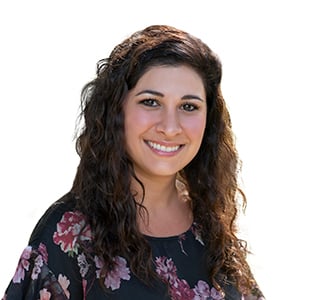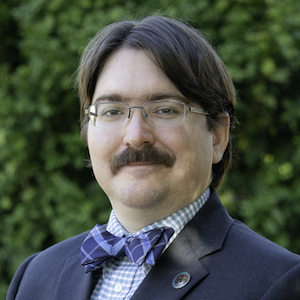Not knowing what to expect with cancer treatment can be very stressful for patients. Managing pain is crucial. Medications can be prescribed, but nonpharmacological management of pain has significant value because it deals with the root causes of chronic pain.

That’s why City of Hope has created a Cancer Pain Rehabilitation Program (CPRP) led by a multidisciplinary team to create long-term solutions for how patients can find relief beyond just the taking of a pill. This new program brings together experts from different fields within City of Hope to partner with patients and teach them new coping and pain management skills, increase their physical functioning and improve quality of life. This program’s interdisciplinary team includes clinical social workers, psychologists, physical and occupational therapists, supportive care medicine doctors, interventional pain experts and clinical researchers.
“Some of the medications that patients are prescribed, while effective, have side effects, such as weight gain and the risk of developing drug dependency, and we wanted alternatives,” said Heather Bitar, D.O., who specializes in palliative care.
Reaching Out To Patients
Eric Mecusker, D.O., led the data collection in building a case for the program.

“I’ve been managing the data [from our patient database] to make this program more of an outreach rather than just referrals,” he said. “Capturing that data was a big hurdle, but in doing so, there is potential to identify patients who would benefit from this program and we can begin contacting them directly.”
Mecusker said there are a number of patients who are in survivorship and whose cancer is under control, but who are still coping with residual pain.
“It’s not always about survivorship,” he said. “There is a quality-of-life issue to address, which we do. Sometimes there is chronic pain associated with cancer, even after treatment. Head and neck cancers, for example, can lead to pain that just doesn’t go away, after they have endured surgery, radiation and scarring.”
“Patients cannot live their best lives if they are limited by chronic pain, and we understand that,” Bitar said. “What we are doing is addressing the physical but also the emotional, psychological and social issues that are associated with living with pain.”
Once enrolled in the six-week pain management program, patients have access to online educational videos developed by the experts on the team, course materials and six weekly live sessions (currently done virtually) with others who share their own experiences with ongoing pain. The sessions are led by individuals from the Department of Clinical Social Work and the Division of Psychology.
New Tools
“We give patients the tools they need to manage their pain without relying on medications,” said clinical social worker Michelle Rouse. “There is an experience of loss when you have chronic pain. You can’t do the things you used to do, so patients pull away and feel defeated, afraid their quality of life won’t improve. We help them lose that fear.”
Pain can be very isolating, Rouse explained. “Participating in a group with people who have a shared experience can have tremendous value,” she said. “Patients often become friends outside of the group, and they encourage each other to practice the skills they learn in group and from working with occupational therapy and physical therapy.”
“They tell each other, ‘Well, this works for me, but this didn’t,’ and they benefit from those conversations,” Rouse continued. “They also hold each other accountable. Some benefit greatly from guided imagery, for example, others from journaling. Our jobs are to help them learn and apply new skills that can help them live meaningful lives, despite living with pain.”
One Patient's Take
For patient Eve Donaldson, the program was “a wonderful experience.”
“I have had a lot of pain and after-effects from chemotherapy years ago,” said Donaldson, who survived breast cancer. “I didn’t know how to deal with it. I needed to learn how to do certain things over again, and this program did that for me.”
Donaldson was having chronic pain due to her breast cancer treatment and surgery, and bone degeneration in her neck and back. It was her City of Hope physical therapist who thought she would be a good candidate for the Chronic Pain Rehabilitation Program, and she referred her.
“For me, it was exciting to learn how to change your thinking and to not beat yourself up,” she said. “I wasn’t exercising as much as I should, but this program motivated me to want to get more exercise, to be active. I wanted to walk and set a goal to get in 3,000 steps a day, for example, and I was able to stick to that. I learned that I wasn’t the only one feeling like this, and that there was light at the end of the tunnel.”
After some progress, Donaldson set a personal goal to go to Disneyland, where there is a lot of walking. It’s a highlight to her of the benefit of the program.
“I made it to Disneyland, and I had a blast,” she said. “I was a kid again.” Unable to play her beloved guitar after her surgery and postoperative pain, she’s picked up the instrument again, another source of joy for her.
“I’m doing really well now,” she said. “I do the meditations every day, and I still refer to my notes and journals. I feel a lot better, and I’m more positive in my attitude than I was before. I can’t say enough about what this program has meant to me. It speaks to the mission of City of Hope to treat the body, but also the mind and the soul. I am so appreciative.”
To participate in the program, patients need a referral from their provider and to complete a participant eligibility screening through individual assessments with the departments of Physical Therapy, Occupational Therapy and Clinical Social Work. Patients may request this from their physician. Outreach directly to patients who may benefit is currently underway.
For more information, contact Chronic Pain Rehabilitation Program coordinator Janet Mokhnatkin at jamokhnatkin@coh.org.